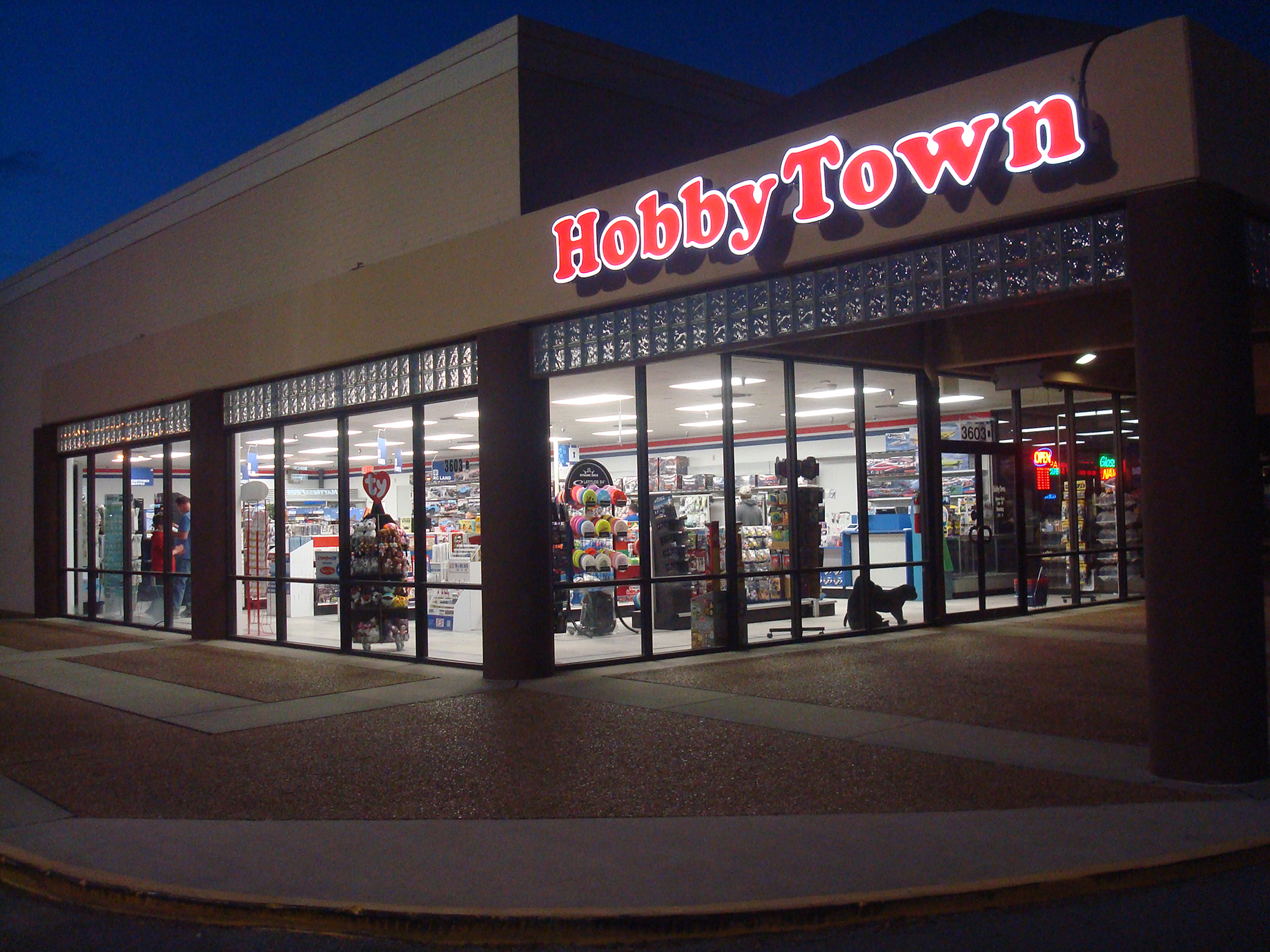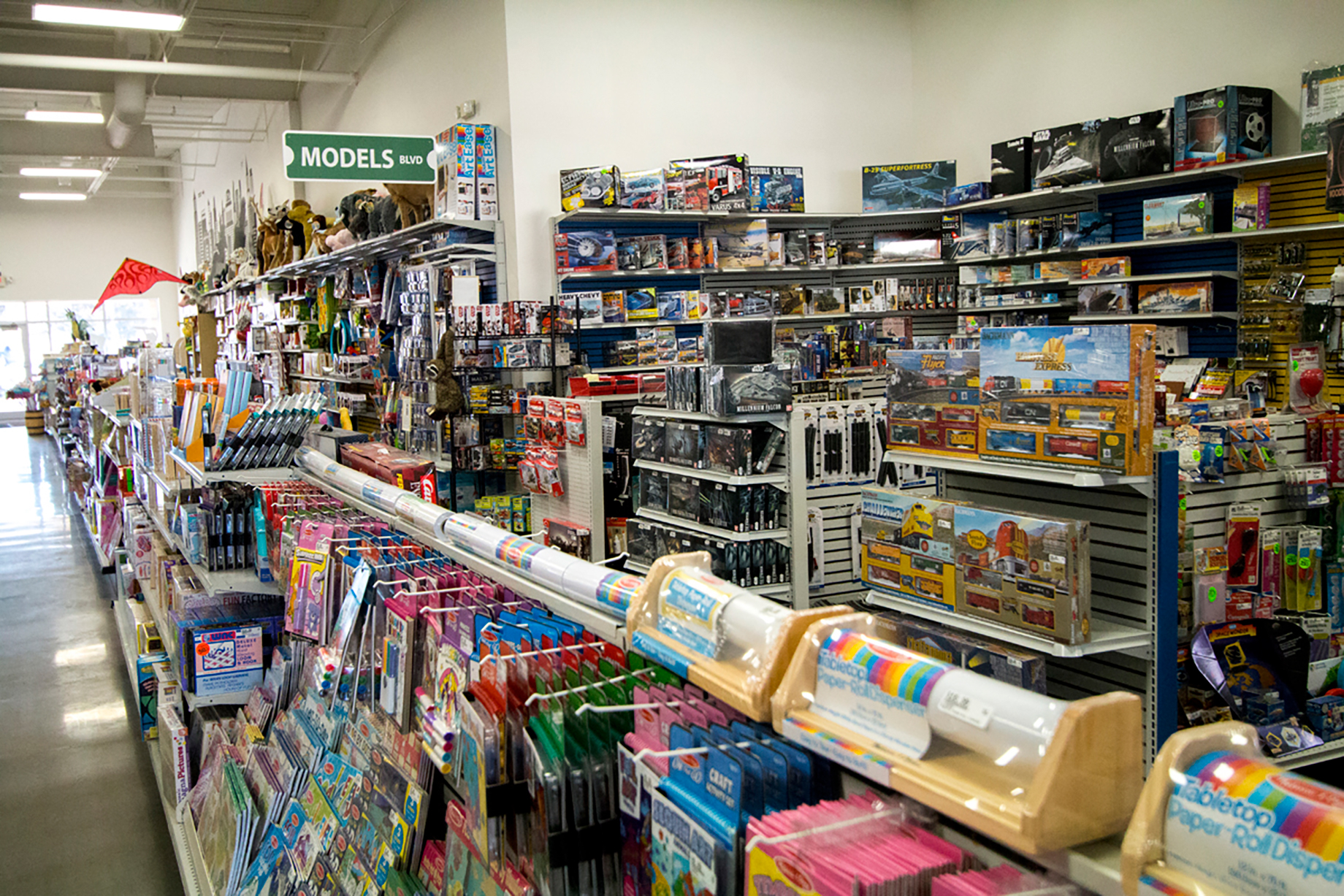Who needs knitting and scrapbooking when you can build and launch your own model rocket or take your remote-controlled racing boat out for a spin?
HobbyTown is testament to the fact that people's passion for hobbies goes well beyond the typical arts-and-crafts project. The national chain is a dominant player in a segment of the hobby market that includes radio-controlled and specialty toys, model trains and more.
HobbyTown has come a long way since Chick Bartlett opened its first store, in Lincoln, Neb., in 1946. He operated that single store for about three decades. In 1980 he sold the business to Merlin Hayes and Thomas Walla, who made the store a household name in the Lincoln area and then began building a national franchise model, in 1986. Today HobbyTown has 145 franchised stores across 41 states.
The stores typically measure about 4,500 square feet each, though some may be as small as 1,000 square feet, and others are as large as 30,000 square feet. Of the 600,000 products HobbyTown carries in-store or online, those smaller stores carry about 15,000, and the larger ones stock as many as three times that number. The operators are free to customize their stores in keeping with local demand, so there is variety in store appearance and organization as well, says Robert Wilke, the chain's president. “It really depends on the individual franchise owner and what they want to do with their stores,” he said.
HobbyTown carries a variety of radio-controlled boats, planes, trucks and drones, and all the accessories to keep them running: batteries, power packs, spare parts and motors.

In July the company announced a partnership with RadioShack for putting store-in-store units within HobbyTown stores. “The demographics of [the RadioShack] customer align with our customer, and it was a natural fit to partner with them,” said Wilke. RadioShack operates roughly 400 locations across the U.S., most of them in small or rural markets. “It’s a win-win: For Radio Shack, it gets them back into those larger markets, and for us, it opens the door to a whole new customer base,” Wilke said.
The initial goal is to bring RadioShack into about 100 stores by September. There will be roughly 20 linear feet of RadioShack merchandise, plus in-store signage promoting RadioShack. HobbyTown is to be listed on the RadioShack website as an authorized retailer.
The HobbyTown in Mooresville, N.C., was among the first to introduce the store-in-a-store concept, with some of the core RadioShack merchandise on offer: the likes of switches, wiring and connectors for electronic toys and projects. “The initial stage-one rollout is to get that type of microelectronics into the HobbyTowns, because it is really a symbiotic relationship between what we do and what RadioShack does," said franchisee Jack Hunt, owner of the Mooresville HobbyTown.
HobbyTown wants to keep expanding its store base at the rate of about 10 stores per year. “We have identified about 400 markets where we would like to have stores, so we do have a lot of growth upside ahead," said Wilke. "The challenge for us is just finding franchisees in each of those locations.”

In these target markets, HobbyTown has its eye on some independent hobby-store operators with the potential for conversion to a co-branded HobbyTown store. “In markets where there is a well-established independent store with a good reputation that fits our core values, we would certainly prefer to work with them rather than introduce more competition into some of those markets that may not be able to support multiple stores,” said Wilke. So far the company has 15 such co-branded stores.
Typically, HobbyTown sets its sights on markets with population upwards of 100,000 within a 20-mile radius. The company also has plans for multiple stores in such metros as Dallas and Chicago. Among the locations where HobbyTown has opened this year are Modesto, Calif.; North Myrtle Beach, S.C.; and Toms River, N.J. Though the company does have some mall stores and stand-alone stores, it prefers neighborhood and community centers.
As for the franchisees, they often choose locations near other hobby retailers, such as Michaels or Hobby Lobby, says Wilke, who explains: “It’s kind of nice to draft off of each other."
By Beth Mattson-Teig
Contributor, Commerce + Communities Today


